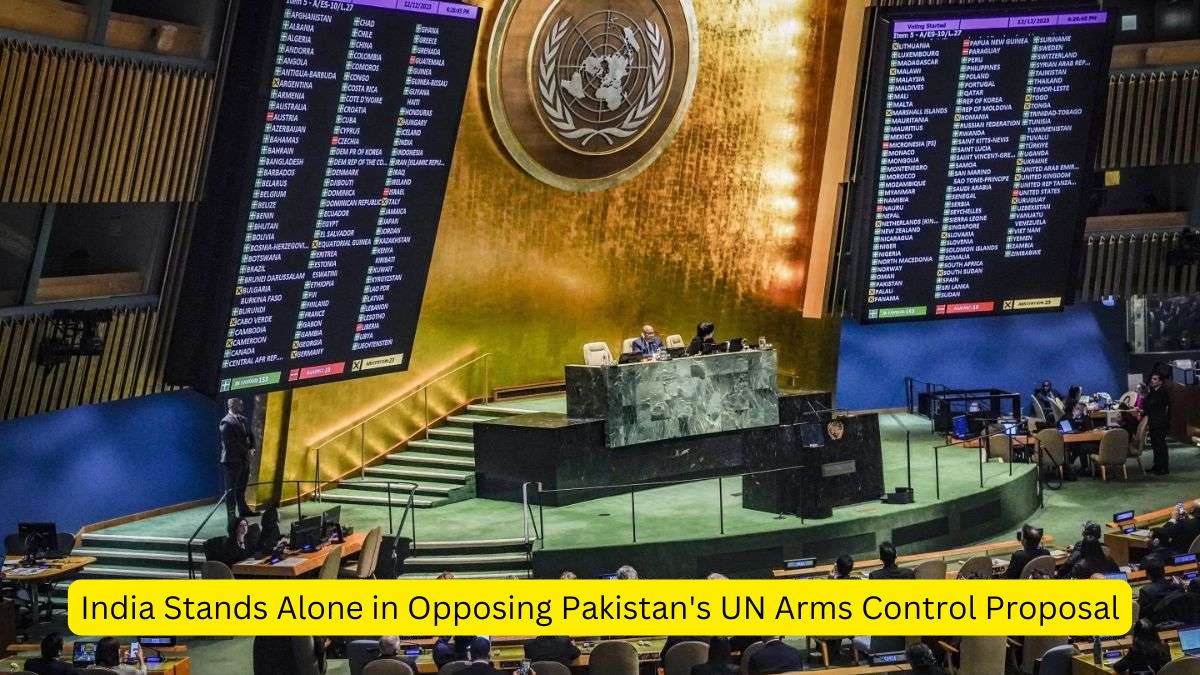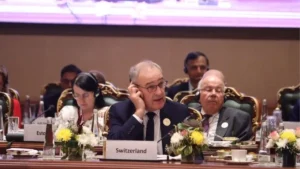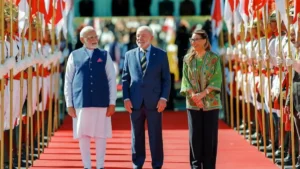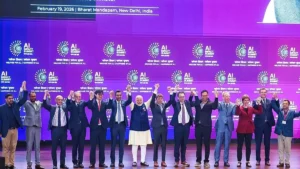India did not support Pakistan and Syria’s resolution on “conventional arms control at the regional and subregional levels” during the First Committee of the UN General Assembly. The resolution, which aimed at promoting arms control in specific regions, was adopted with 179 votes in favor.
Israel was absent/abstain from the vote, while India stood as the only country to oppose the resolution, reflecting its concerns over the potential regional implications for its national security.
Focus
- The resolution advocates for arms control initiatives at regional and subregional levels to promote peace and security.
- It emphasizes the growing importance of regional arms control, particularly in the post-Cold War era, where security threats are often concentrated in specific regions.
Core Objectives
- Recognizes the “crucial role” of conventional arms control in fostering regional and international peace.
- Highlights that most post-Cold War security threats arise between countries in the same region or subregion.
Regional Focus
- Acknowledges regional initiatives for arms control, particularly in Latin America and South Asia.
- Underlines the value of conventional arms control in enhancing regional security, especially in sensitive areas like South Asia.
Special Responsibility of Militarily Significant States
- The resolution calls for militarily significant states and those with larger military capabilities to take special responsibility in promoting regional arms control agreements.
Urgency
- Urges urgent consideration of conventional arms control issues at the regional and subregional levels to address contemporary security challenges.
India’s Stand on the Resolution
India’s Opposition
- India was the only country to vote against the resolution, signaling its concerns over the implications for regional security, particularly in South Asia.
Rationale for India’s Vote
- India’s opposition likely reflects concerns about the regional arms control framework being influenced by countries with divergent security priorities, particularly with regard to its national security interests in South Asia.
Adoption of the Resolution
Recorded Vote
- The resolution was adopted by a recorded vote, with 179 members voting in favor. Israel was absent from the vote, and India was the sole dissenting voice.
First Committee of UNGA
- The First Committee of the UN General Assembly focuses on issues of disarmament, global security, and peace challenges that affect the international community. This committee plays a pivotal role in shaping the UN’s stance on global arms control.
Significance of the Resolution
Regional Security Concerns
- The resolution reflects growing global interest in arms control tailored to regional security dynamics, especially in regions with heightened military tensions like South Asia.
Implications for South Asia
- The resolution’s reference to South Asia indicates the ongoing importance of conventional arms control in the region, particularly given the complex security environment between India and Pakistan.
United Nations General Assembly (UNGA)
About
- It was established in 1945 under the Charter of the United Nations and is headquartered in New York City.
- It is one of the six principal organs of the UN and serves as the main policy-making organ of the Organization.
- It provides a unique forum for multilateral discussion of the full spectrum of international issues covered by the Charter of the United Nations.
- Each Member States of the United Nations has an equal vote.
key decisions
The UNGA also makes key decisions for the UN, including,
- appointing the Secretary-General on the recommendation of the Security Council
- electing the non-permanent members of the Security Council
- approving the UN budget
General debate of UNGA
- The Assembly’s annual general debate provides Member States the opportunity to express their views on major international issues.
- On this occasion, the Secretary-General presents on the opening day of the debate his report on the work of the Organization.
| Summary/Static | Details |
| Why in the news? | India did not support Pakistan and Syria’s resolution on “conventional arms control at the regional and subregional levels |
| Focuses on disarmament, global challenges, and peace threats. | |
| Adoption of Resolution | Adopted by 179 votes in favor, India as the sole country to vote against. Israel was absent. |
| Key Objectives of the Resolution | – Emphasizes the role of conventional arms control in promoting regional and international peace.
– Focus on regional and subregional arms control. – Calls for urgent action on the issue. |
| UNGA First Committee | – Regional Focus Recognizes initiatives in Latin America and South Asia for conventional arms control. |
| India’s Opposition | India was the only country to oppose the resolution |
| United Nations General Assembly | Establishment – Established in 1945 under the Charter of the United Nations.
Headquarters – Located in New York City. Principal Organs – One of the six principal organs of the UN. |




 Geneva to Host AI Summit 2027 & UAE ...
Geneva to Host AI Summit 2027 & UAE ...
 India-Brazil Seal 10 Big Deals: A New Po...
India-Brazil Seal 10 Big Deals: A New Po...
 AI Impact Summit 2026 Concluded As 89 Na...
AI Impact Summit 2026 Concluded As 89 Na...








